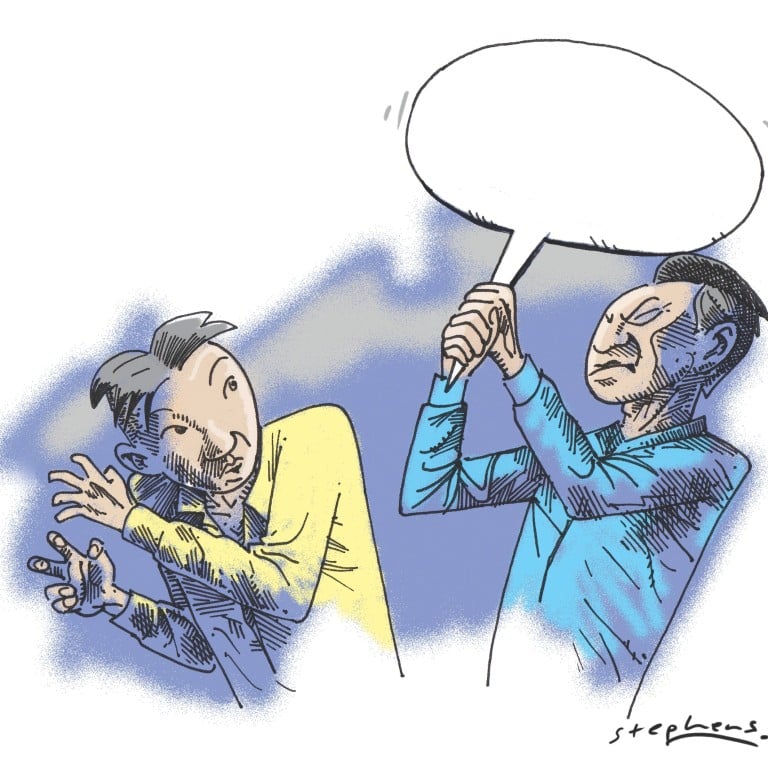
No excuse for using slurs against mainlanders
Ling Woo Liu says slurs that dehumanise people can linger in the public domain, especially if the media is complicit in their use, as several US examples show. It's time for Hong Kong to stop the degrading name-calling
The "locust" protests in Hong Kong underscore long-fomenting resentment among some who feel that mainland Chinese are crowding the city's already teeming streets. This has led some to debate the propriety of publishing such slurs. While bigoted words first fall out of favour with the politically correct and socially progressive, they often linger on the tongues of the general public far longer because the media continues to print and broadcast them.
Several examples in the US, no stranger to racial tensions, come to mind. The word "Chinaman", for instance, has long been considered offensive for its association with the violence and legally sanctioned discrimination faced by Chinese immigrants in the late 19th and early 20th centuries. Yet, as recently as 2007, Ted Turner, the founder of CNN, used the word in a speech in San Francisco (where one in five residents is Chinese American). The used it in a column in 2012. And American sportscasters have used it in recent years to refer to Chinese basketball players and golfers on multiple occasions.
When "Chinaman" is used in the workplace, American courts are unequivocal about the term's meaning. In 2008, a contractor for San Francisco's Municipal Railway was ordered to pay US$37,000 to a Chinese American welder who sued the company. The employee said he was fired after complaining that his foreman taunted him daily with racial slurs, such as "ching, chang, chong" and "Chinaman".
Last year, a US District Court wrote in an employment discrimination case that "the term 'Chinaman' carries with [it] a historically derogatory and belittling meaning, which is highly offensive ... The court finds no ambiguity in the use of such term."
But the courts can't stop the public from using certain words when they're not at work, nor have they ruled on the media's ability to use them. Until last year, all but one US media outlet, , continued to use the full name of the US capital's football team, the Washington "Redskins", a derogatory term for Native Americans. Over the past six months, however, as lawmakers, religious leaders, activists and Native American tribes have called for the team to change its name and mascot, more than 30 media outlets have banned the use of the name in their coverage.
One of the most debated racial slurs in the US is the "N-word" - that, by the way, is the word's recommended spelling according to the Associated Press Stylebook, which is used by English-language newsrooms around the world. Though many American newspapers refuse to print the word in full, recently published a column with the full spelling of the word.
The N-word has been on trial, too. Last September, a jury awarded a New York City woman US$280,000 in damages after her employer called her the N-word at the office (both parties are African American, by the way). And, after a highly publicised bullying scandal among its players, the National Football League is expected to rule this month on enacting a mandatory 15-yard penalty should any player use the N-word on the field.
As the US Congress debates immigration reform, another set of terms, "illegal immigrant", "illegal alien", "an illegal" and "illegals", has become hotly contested since the National Association of Hispanic Journalists launched a campaign in 2006 challenging the media's use of the terms. After years of pressure, the AP Stylebook stopped using all of these terms last year.
"The Stylebook no longer sanctions the term 'illegal immigrant' or the use of 'illegal' to describe a person," the AP said in a statement. "Instead, it tells users that 'illegal' should describe only an action, such as living in or immigrating to a country illegally." A number of media outlets immediately followed suit, scrapping the terminology from their coverage.
"We applaud AP for its decision to stop using the word 'illegal' to describe human beings," said Alex Nogales, president and chief executive of the National Hispanic Media Coalition. "At a certain point [this term] lost any descriptive qualities and became nothing more than a slur used to dehumanise and degrade a very important part of our country."
Activists say there's more than semantics at stake. Hate crimes against Latinos have been on the rise in recent years, with some attributing the spike to white Americans feeling threatened by the fact that they will become minorities in the US by 2043.
And that's where there are ominous similarities to the "locust" debate in Hong Kong. Though Hongkongers and mainland Chinese share the same ethnic identity, the tension between them is similar to many racial clashes in the US - the established majority feels threatened by an influx of newcomers. Hongkongers have feared a sea tide of change since the former British colony was handed back to China in 1997.
Many predictions have been realised. The economy is more dependent on the mainland than ever, with more than a third of all foreign investment now stemming from the mainland, and mainland tourists now comprising three-quarters of all visitors.
But those aren't reasons to resort to name calling. Even a child will tell us that words do hurt. And when adults couple hateful words with actions, the consequences can be deadly. Words such as "locust" help dehumanise other human beings on a mass scale, especially if the media gives them a platform, but they also waste valuable time that would be better spent searching for real solutions to the discord at hand.

